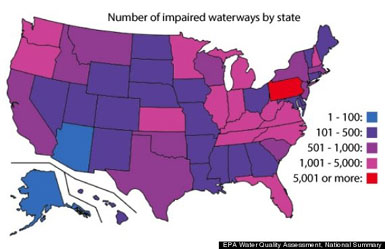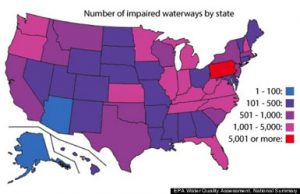Last week, Trump ordered supervisors installed in all federal agencies to carry out his “2 for 1” scheme to eviscerate big bad regulations that supposedly hold our economy back. Only regulations that cost industries $0 in 2017 can stay in place – forget any benefits of holding corporations accountable, such as saving lives, protecting human health, safeguarding fundamental rights, worker rights, environmental rights, and caring for wildlife and wildlands. And for any regulation that is put in place, two must be eliminated even if they are entirely unrelated.
“This fundamentally changes our government’s role from one of protecting the public to protecting corporate profits, and will lead to a dangerous new era of deregulation and corporate “self-regulation,” says Robert Weissman, President of Public Citizen, which is suing Donald J. Trump for the regulations assault.
But this is just the beginning. If the Midnight Rules Act, , SCRUB Act, REINS Act and Regulatory Accountability Act pass, major items long on the Republican wish list will finally be fulfilled. The bills have passed in the House and now await Senate action.
- Midnight Rule Relief Act allows Congress – in just one vote – to repeal all regulations passed over the past year.
- SCRUB Act (Searching for and Cutting Regulations) creates an appointed board to make recommendations to Congress on which regulations should be repealed – a quiet way to give corporations big gifts while repealing citizen protections.
- REINS Act (Regulations From The Executive In Need of Scrutiny) gives Congress control over major new regulations, taking it out of the hands of professionals in federal agencies. For the first time, Congress would be in charge of approving regulations. If not approved within 70 days, the regulation dies and the agency is barred from taking it up again.
- Regulatory Accountability Act makes it very hard to set new regulations by bogging the process down with over 60 new steps. Until now, agencies balance costs and benefits when considering new rules, but this law requires them to choose the “least costly” option as opposed to the “most effective” option.
The House passed the REINS Act several times during Obama’s term, but it was stopped in the Senate. The House voted down Democrat amendments to exempt rules that affect veterans’ health care, nuclear reactor safety, transportation of hazardous materials, and the safety of products used by children under the age of 2, reports USA Today.
Read our article, REINS Act Would Increase Toxic Pollution
These bills “give Congress sweeping authority to substitute political judgement for scientific judgement. It gives Congress permission to ignore all the years of technical work and public comment used to develop public health, safety, and environmental protections, and simply dismantle all these vital safeguards in one fell swoop,” says Union of Concerned Scientists. It’s ironic, because federal agencies develop regulations at the behest of Congress in the laws they pass!
The REINS Act “could, in effect, impose a slow-motion government shutdown, and would replace a process based on expertise, rationality and openness with one characterized by political maneuvering, economic clout and secrecy. The public would be less protected, and the political system would be more abused. Indeed, it is hard to imagine a more far-reaching, fundamental and damaging shift in the way the government goes about its business of safeguarding the public,” says Natural Resources Defense Council.
Sign this petition if you want the Senate to vote these bills down.
Conservative think tank Competitive Enterprise Institute is helping out with a 193-page agenda with a long list of regulations to eliminate, and Rep. Meadows (R-NC) has offered a list of 232 regulations that can be repealed immediately.
And who did Trump put in charge of advising on which regulations to gut? Billioinairre corporate raider Carl Icahn. With $16.5 billion, Icahn has plenty of money to protect (and grow!).
Corporations are Thrilled
Real estate developers, for example, are thrilled with the rollbacks. Eliminating the “Waters of the US” rule makes it much easier to build without worrying about protecting wetlands and the streams half of Americans rely on for their drinking water. When the Endangered Species Act is gone, that will take a big pain out of the way.
Environmental Protection Agency
Federal contractors are thrilled that the House repealed Obama’s Fair Pay and Safe Workplaces executive order, which requires them to comply with worker health and safety laws before getting new contracts. 30% of the worst violators received $81 billion in federal contracts, according to a 2013 Senate report. It affects the family of Rodney Bridgett, who was killed when a piece of heavy equipment crushed him and Calvin Bryant, crippled by a workplace explosion that killed 14 co-workers, for example. A vote in the Senate is imminent.
On the chopping block:
- lead safety standards in drinking water
- unsafe chemicals to be removed from the market under the Toxic Substances Control Act
- gut enforcement of the Clean Air and Clean Water Acts
- prohibit payday lenders from praying on consumers with high interest rates
- gut Dodd-Frank Wall Street reform, Consumer Protection Act, Food Safety Modernization Act, Pipeline Safety Act and many more.
- gut food safety regulations, net neutrality rules that protect he Internet from monopolies, energy efficiency standards for appliances and vehicles, and of course, the Clean Power Plan that reduces emissions from power plants.
- no more restrictions on oil drilling or coal mines on public land
- no more standards for healthy school lunches
- standards that protect health workers from exposure to infectious diseases
- a rule to prevent mining equipment from crushing miners
- rules that protect communities from oil trains from exploding
- protections for endangered species
Visit rulesatrisk.org to keep up (if you can!) with the rules on the chopping block.
“It’s horrifying that even after the Wall Street crash, the massive BP oil spill and numerous other public health and safety disasters across the country due to a lack of strong regulations, Americans will once again have to pay the price for the consequences of corporate recklessness, greed and lawbreaking,” says Weissman.
“Congress totally lacks the technical competence to review these kinds of complex rules. Do we really want members of Congress deciding whether a chemical can safely be used in food packaging? Or the proper procedures for approving new drugs as safe and effective? Or setting the allowable safety standard for heavy metals in drinking water?,” asks Carl Pope, former Sierra Club president.
Say Goodbye to Class Action Lawsuits?
HR 985, which would make it almost impossible for citizens to join class action lawsuits – among the most effective tools for victims of corporate abuse – will soon get a vote. Think about the BP oil spill or Wells Fargo’s illegal bank accounts. HR 720, HR 725 and HR 732 would make it harder for victims of corporate wrongdoing to sue and hold them accountable.
How About a Rule that Requires the President to Reveal His Taxes?
Although the vast majority of Americans want Trump to reveal his taxes, House Republicans don’t like that rule either. Every single one of them voted to block a resolution that would force Trump to do what all other presidents have done on their own volition.
The House Ways and Means Committee has the power to demand Trump’s taxes, but the full House voted it down when Rep. Pascrell (D-NJ) brought it to the floor.

